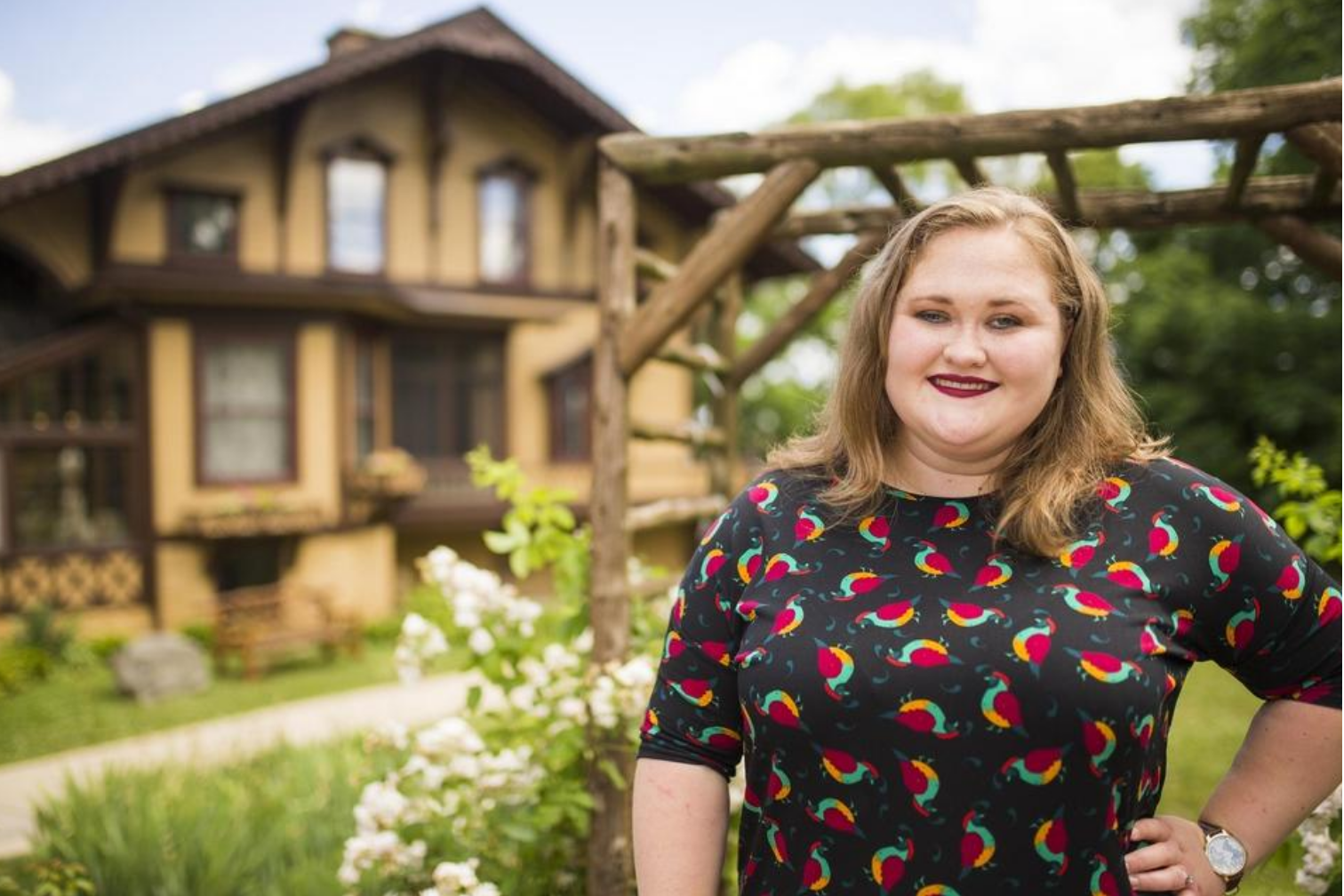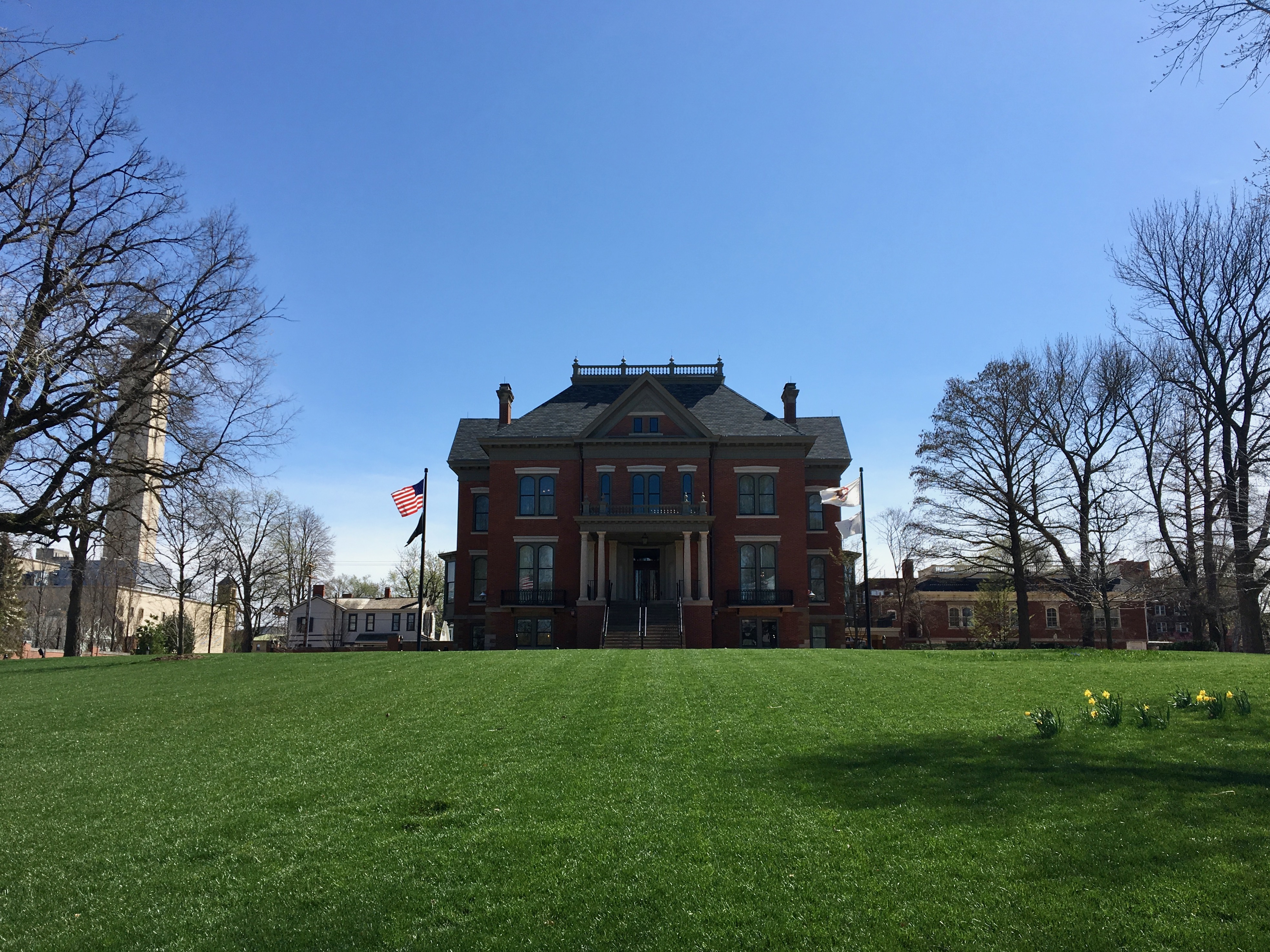
ROCKFORD — Sitting on a limestone bluff overlooking Kent Creek, Tinker Swiss Cottage is Rockford’s best time capsule.
Robert Tinker began building his Swiss cottage in 1865 when Rockford was just 31 years old. It was the same year Robert E. Lee surrendered to Ulysses S. Grant at Appomattox to end the Civil War, and the same year Abraham Lincoln was assassinated.
The Tinker family lived in the house for 75 years before leaving the home and its belongings to the Rockford Park District. The house is filled with the original furniture, artwork, diaries, clothing, and household items.
It opened to the public as a museum in 1943 and it has averaged 200 to 250 visitors a week over the past five years. But like 85,000 other museums across the world, Tinker Swiss Cottage was closed for half of March, all of April and May.
Hochmann is a 2009 Harlem High School graduate who earned an associate degree at Rock Valley College and then bachelor’s and master’s degrees in history at Northern Illinois University. She began working at Tinker in 2016 as director of education and was named executive director in September 2018.
“I feel extremely privileged to be 28 and running a museum. That is an end-career dream,” Hochmann said. “It’s been a whirlwind four years.”
“In May, normally we are swarmed with school group tours. All of our rental revenue is down. We’ve lost 12 planned events for the year,” said Samantha Hochmann, Tinker’s executive director.
Now, Hochman is in a whirlwind of change as Tinker, like all museums, struggle with what life might be like in a post-COVID-19 world.
“We are fortunate in that we are a ‘no touch’ museum,” Hochmann said, which means Tinker isn’t facing extra cleaning costs to keep exhibits clean at all times.
Tinker laid off its one part-time staffer whose job was to give tours, leaving it with just two full-time people and a “very part-time” bookkeeper. They filled their time keeping Tinker’s Facebook page active by videoing a number of “Tinker Topics.”
In early June, when Gov. JB Pritzker released state guidelines on how to safely reopen businesses, Hochmann felt fortunate because Tinker could open under Phase 2, which allows for gatherings of under 10 people.
“We limited tour sizes to eight people. We’ve been asking that people make reservations in advance so that we are sure we can meet the guidelines. We are requiring masks.”
Tinker opened on June 4 and last week it welcomed its first visitors since the shutdown.
“People are very cautious because there are still a lot of unknowns with this virus,” Hochmann said. “People haven’t lived through something like this.”
In late May, a report by the United Nations Educational, Scientific and Cultural Organization (UNESCO) and the International Council of Museums estimated that up to 13% of museums worldwide may never reopen because of the pandemic.
Tinker, like most of Winnebago County’s museums, is not facing that dire fate because it is supported by tax dollars. The Rockford Park District collects the taxes and passes them on to the organizations. The 2020 park district budget showed that Tinker will receive $119,355.
The rest of Tinker’s income comes from tours, rentals and grants, and Tinker’s lack of foot traffic could have long-term ramifications.
“We rely on visitor numbers when applying for grants and it’s going to be harder because it’s going to appear we aren’t growing.”
Beyond the funding, Hochmann worries that Tinker is “losing its connection” with Rockford.
We try to be an outlet for the community of the southwest corridor,” Hochmann said. “We do a lot of community events that we’re worried won’t be able to take place, such as a trunk-or-treat event in October. I’m not sure we can do that. We are concerned about a possible relapse in the fall. That comes up a lot in our discussions. We want the community to feel we are a safe place. We don’t want to become obsolete.”
This story was produced in partnership with the Pulitzer Center. For more stories about the effect of COVID-19 on museums, please visit the Prairie State Museums Project at PrairieStateMuseumsProject.org.
COVID-19 Update: The connection between local and global issues–the Pulitzer Center's long standing mantra–has, sadly, never been more evident. We are uniquely positioned to serve the journalists, news media organizations, schools, and universities we partner with by continuing to advance our core mission: enabling great journalism and education about underreported and systemic issues that resonate now–and continue to have relevance in times ahead. We believe that this is a moment for decisive action. Learn more about the steps we are taking.
- View this story on Rockford Register Star














